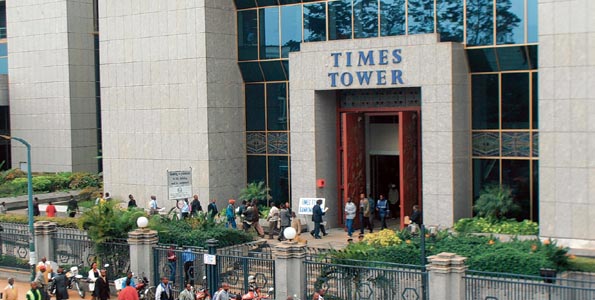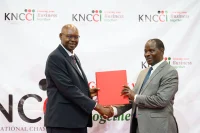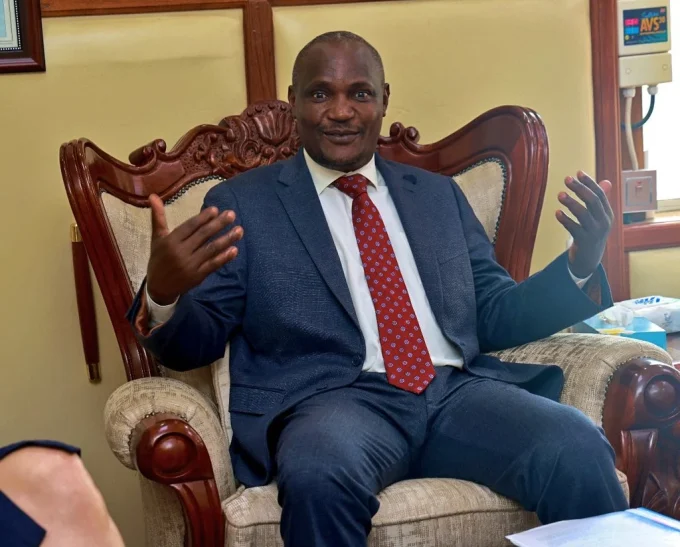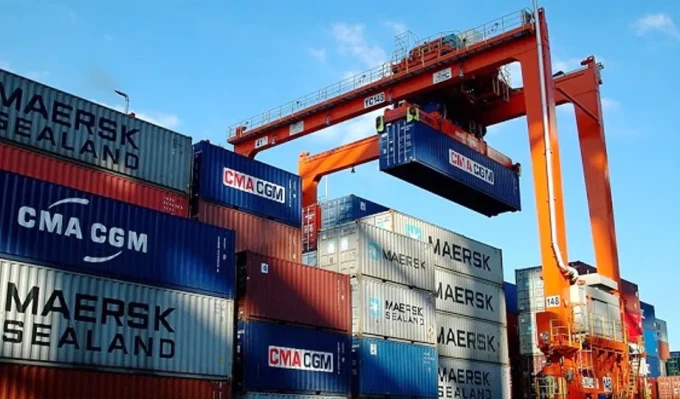[dropcap]K[/dropcap]enya has become increasingly exposed to illicit products and counterfeit goods, hence the need to take an all-round approach towards curbing this menace.
Kenya Revenue Authority, Anti Counterfeit Agency (ACA), the Kenya Bureau of Standards (KEBS), Ministry of Health, NACADA, National Police Service, NEMA and Nairobi Water and Sewerage Company have in the past one month increased the vigour in combating trade in illicit and counterfeit products.
The collaboration of agencies against illicit trade, which is also a component of financial crime, is bearing fruits and will eventually lead to fair trade within the market. Consumers will also be protected from substandard and potentially harmful goods.
To holistically combat the vice of financial crimes, KRA together with the Organisation for Economic Co-operation and Development (OECD) have embraced training of officers to equip them with requisite skills that will help them seal loopholes in financial crimes.
The training focuses on Conducting and Managing Financial Investigations Programme and is in its third phase. The OECD Pilot Africa Academy for Tax and Financial Crime Investigation training, whose third phase kicked off in the first week of June, is backed by the OECD and Embassies of Italy and Germany.
The skills gained at the training will improve the ability of tax crime investigators to detect and combat tax offences and other financial crimes including money laundering and corruption, which is a major menace in the country.
Broad-based intelligence
The OECD programme is aligned to KRA’s strategy that spells out enhancement of capacity to address tax crime investigation. It is worth mentioning that we recognize that effective intelligence collection is a key factor in achieving successful interdiction of tax crimes. This is why KRA established a fully-fledged and broad based intelligence management department with a variety of functions that include intelligence collection on tax evasion and corruption.
This initiative is key, not only for Kenya but for Africa, given the growing importance of domestic resource mobilization especially for developing countries. The training comes in the wake of increasing financial crimes in the continent. These crimes are a major threat to our ability as a continent to become self-sufficient in development of resource mobilization through tax collection.
One component of economic crimes is financial and tax fraud. This is a threat to our security as illicit financial flows are sources of funding for terrorist organizations.
We are optimistic that the knowledge gained and the exchange that took place during the first and second phases will come in handy for all participants in combating and apprehending the menace of tax and money frauds around the world.
An estimated 50 participants from over 18 countries across Africa are expected to take part in the training, which kicked off at The Kenya School of Monetory Studies in Nairobi.
The participants are experts in tax and financial crime investigation, others are prosecutors, financial analysts, and judicial officials. The course is steered by an international faculty of senior and experienced tax crime investigators and financial crime experts drawn from Germany, Norway, United States of America, the United Kingdom and Uganda.
READ: BATTLE FOR SH500 MILLION KAREN HOME
We have the potential to mitigate against the aforementioned challenges to an extensive level through equipping our tax investigators with the right skills required to combat the elephant in the room. Therefore, the benefits encapsulated in the programmes offered by the Tax and Financial Crime Investigation Academy cannot be overstated.
Apart from equipping ourselves with skills as tax crime investigators, this programme will keep us posted by increasing our awareness on the current risks and trends. This training offers an apt platform for us to learn and share these new trends for successful annihilation of this menace.
Always being alert
The vices at hand are a global menace and our success to effectively deal with them calls for cooperation and joint efforts from all the concerned stakeholders. Therefore, this training is of great essence because it will be a foundation stone to our cooperation from agency to agency and country to country level.
The outcome of this programme is the requisite fodder we need to successfully deal with the menace of tax and financial crimes. As we focus on strengthening the skills of our officers, we urge Kenyans to join our hands in this programme by being alert and steering away from substandard products.













Leave a comment